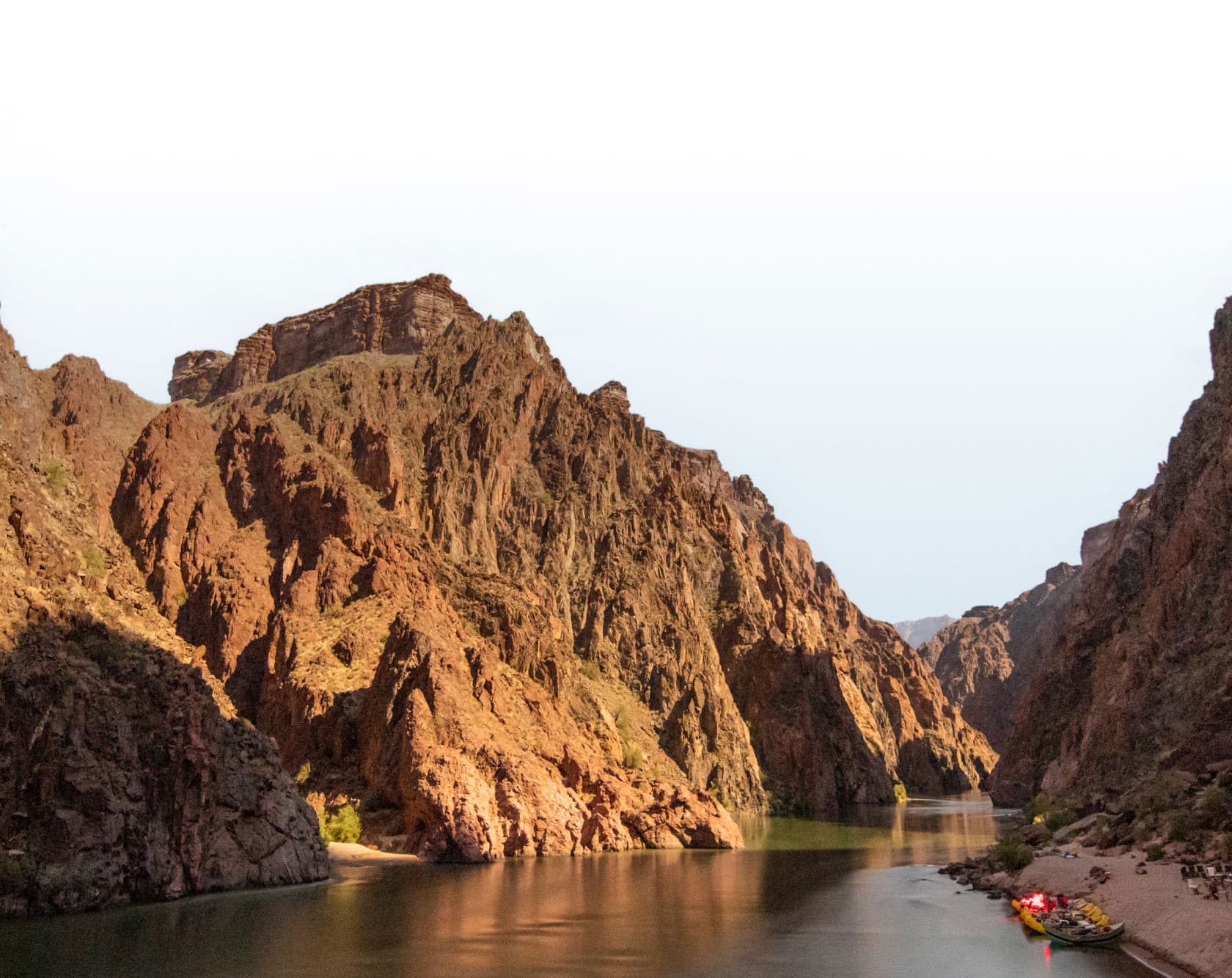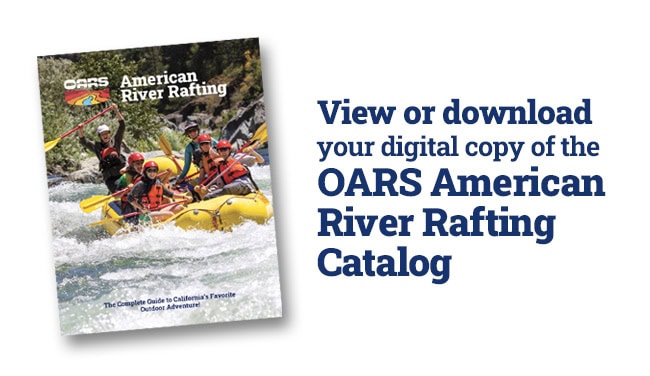One Guide’s Path from Coral Reefs to Idaho’s Canyons


As a marine technician and scientific diver studying coral around the islands of American Samoa, Kersten Schnurle thought she’d found a career that she’d stick with. But after a family Grand Canyon rafting trip with OARS, she learned that there are other opportunities that matched her passion for the natural world.
“I was really interested in how the guides did everything, how they rigged their boats, all the backcountry kitchen systems, and reading whitewater and rowing,” Kersten says. “I picked up some stuff and tried to help out. At the end of the trip, the trip leader, Ashley Brown, was like ‘Hey, if you’re not doing anything next season, you should think about being a guide up in Idaho.’”
That spring Kersten decided she’d enjoy a change of scenery. After a brief chat with OARS Idaho Manager, Curt Chang, she packed her bags for Lewiston. She learned a lot on her first few trips.
“I showed up. I’d never rowed a boat before or done any guiding. I’d never even been to Idaho,” she laughs. “I messed up a number of things, but I stuck around and got better.”
Now, almost seven years later, Kersten has been named one of OARS Top Guides for 2021. Though she still goes for the occasional scuba dive, the Stanford graduate has brought her love for wildlife and geology to the inland Northwest, offering guests in-depth knowledge of the environment surrounding the Snake, Salmon and Owyhee Rivers.
We caught up with Kersten to chat about her love for guiding, the challenges that come with the job, her favorite trips and what makes a really good river guide.
Meet OARS Idaho Guide Kersten Schnurle

What do you love about your work?
Being out on the rivers in Idaho. It’s such an incredible place to work. There’s just not many jobs where you get to live on a river all summer. That was one of the big draws for me. The wonderful people I get to work with have kept me coming back. The guides up there are just some of the best people I know and super fun to work with.
There’s much to learn and so much to perfect as a guide. We’re always tweaking the systems and optimizing things. It’s an interesting challenge to try to get good at it and learn the systems and take care of people out there.
What are the biggest challenges?
The hard part for me is kind of figuring out how to not overwhelm people with interp. I have a lot of enthusiasm for the natural history in Idaho. I studied biology and geology. Being in those places has made me learn more about the inland Northwest. I have all this information I want to share, but sometimes it’s hard for me to read when my passengers are kind of over it and when they’re just nodding politely.

What’s your favorite trip to guide?
We do Hells Canyon on the Snake, the Middle, Lower and Main Salmon and when we’re lucky, we get to do the Owyhee. I’ve been fortunate to guide on all of those. My favorite changes depending on the season. I love the Main. It’s such a great stretch. There are so many cool rocks and so much human history and neat little ecosystems. It’s nice being in that wilderness area.
At the beginning of the season, sometimes we get to run early Hells Canyon trips. That is so incredible when everything’s green and there are so many wildflowers. There’s so much wildlife in Hells Canyon that time of year, too.
In your opinion, what makes a good river guide?
Just based on who I work with, you have to have a lot of enthusiasm for working hard.
After those long days on the water when it’s hot and maybe there’s smoke, you have to be able to joke around when you’re carrying heavy things up boulder-strewn hills to camp and setting up camp for everyone. You just have to be willing to embrace really hard physical work.
You also have to want to take care of people. Years ago, OARS Idaho manager Hillary Mosman explained it to me like this: When we’re on the river, it’s our home. We’re used to it, and we’re hosting people who aren’t, people who maybe haven’t been outside a lot, or haven’t been on river trips before. We work to make them feel welcome and comfortable and like it’s their home too. That’s the fun part!
What skills or abilities do you take from guiding that you’ve applied to other aspects of your life?
One of the biggest things that comes to mind is managing people or groups. Before I came to OARS, I did not have the ability to use my voice to make groups listen to me or even to talk in front of groups comfortably. I now find that I switch into guide mode when I take kids backpacking or have to give a scuba diving safety talk or almost anything that requires an air of authority.

What are your goals for guiding?
I have two very different answers for that. The first is the easy one. I want to keep having fun with my friends in pretty places.
The better answer is how the goals of OARS to get people into the wilderness and educate them about these places and build support for conserving them really resonates with me. I think that’s kind of the most important stuff we do out there. We want to teach our guests that these places are special, so they use their voices and votes to protect them. We want to help build a constituency to try to keep these places wild and beautiful.
As a top guide, what advice do you have for new guides?
I work a lot of the new guide training trips. Some of the things we’re constantly trying to instill and cultivate are situational awareness in terms of safety and in camp, making sure that all the things that need to get done are done. Also, having a growth mindset. We try to encourage young guides to figure out what they want their trips to be like for the passengers and making that happen. For me, it’s trying to teach people about natural history and show them how cool wild places are. For others, it might be teaching someone to paddle a kayak for the first time. We want guides to find what they’re passionate about and bring that to the team.
I also think accountability gets you far in the guiding world—taking responsibility for the things you did (and didn’t) do. Everybody makes mistakes (I’ve made tons), and we all know that. So really what folks want to see is how you react to your gaffes.
And also knowing your gear, how to take care of it, and how to fix it in the field.
This interview was edited for clarity | Photos: Kersten Schnurle; Erik Boomer
Related Posts
Sign up for Our Newsletter






